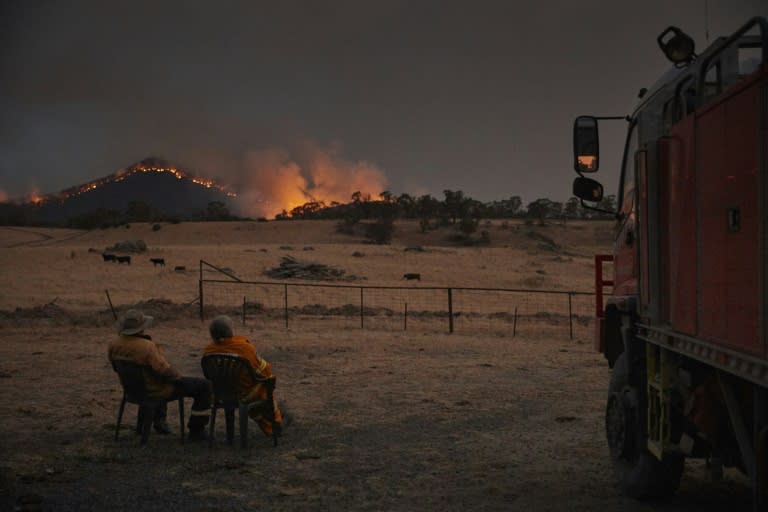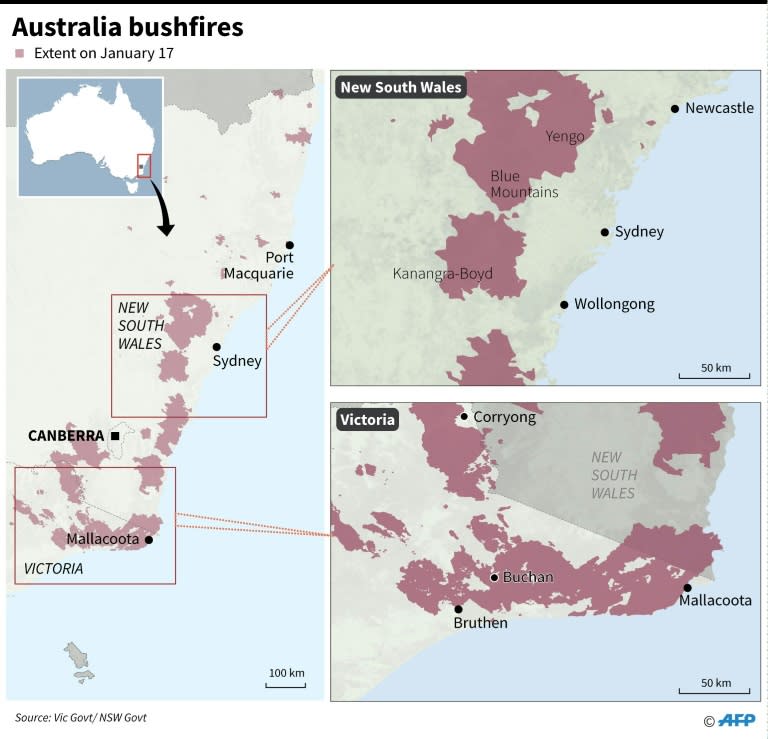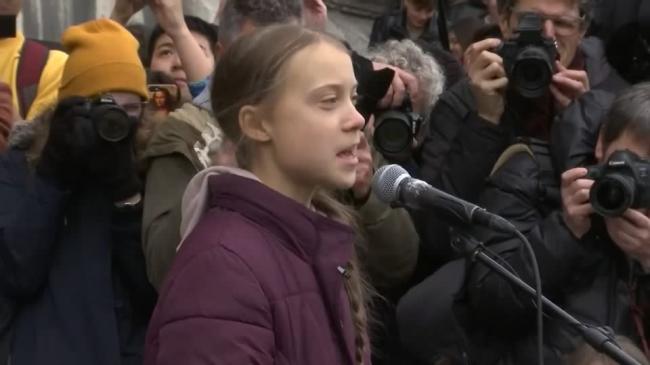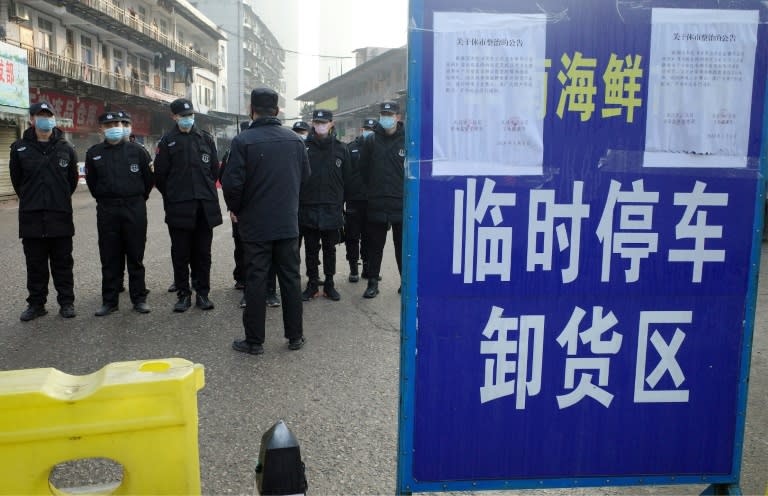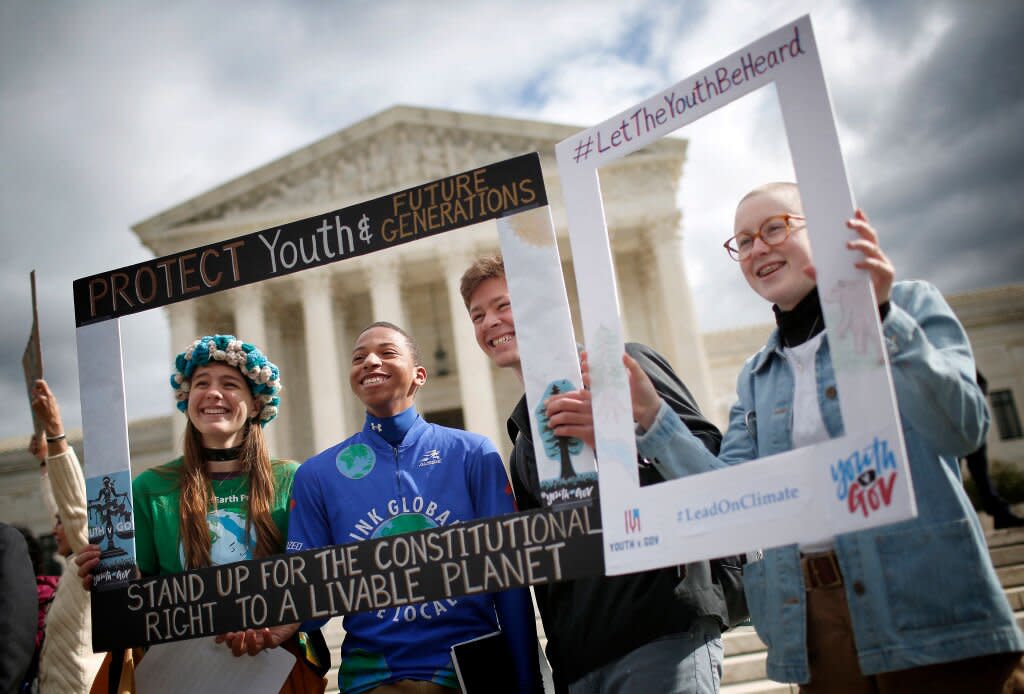AFP•January 17, 2020
Leading the main weekly Muslim prayers in
Tehran for the first time since 2012, Khamenei
said the Jan. 8 downing was a “bitter” tragedy
Tehran (AFP) - Iran's supreme leader said Friday that demonstrations at home over the accidental downing of a Ukrainian airliner were unrepresentative of the Iranian people and accused the country's enemies of exploiting the disaster for propaganda purposes.
Leading the main weekly Muslim prayers in Tehran for the first time since 2012, Ayatollah Ali Khamenei said the January 8 incident was a "bitter" tragedy but should not be allowed to overshadow the "sacrifice" of one of Iran's most storied commanders, assassinated in a US drone strike.
His sermon came after a traumatic month for Iran in which it approached the brink of war with the United States and mistakenly shot down the Ukrainian jet, killing all 176 people on board.
"The plane crash was a bitter accident, it burned through our heart," Khamenei said in an address punctuated by cries of "Death to America" from the congregation.
"But some tried to... portray it in a way to forget the great martyrdom and sacrifice" of Major General Qasem Soleimani, the head of the foreign operations arm of Iran's elite Revolutionary Guards who was assassinated in Baghdad on January 3.
Khamenei said Iran's enemies had tried to use the plane tragedy to undermine the Islamic republic.
"Our enemies were as happy about the plane crash as we were sad," he said.
"The spokesmen of the vicious American government keep repeating that we stand with the people of Iran. You're lying," Khamenei said.
He also slammed Britain, France and Germany, which on Tuesday decided to trigger a dispute mechanism in the 2015 nuclear deal with Iran, following US threats to impose tariffs on European cars.
"It has been proven now, after about a year, that they are, in the true sense of the word, America's lackeys," he said.
President Donald Trump reacted by tweeting that Khamenei should watch his words.
"The so-called 'Supreme Leader' of Iran, who has not been so Supreme lately, had some nasty things to say about the United States and Europe," Trump tweeted.
"Their economy is crashing, and their people are suffering. He should be very careful with his words!"
- 'The deceived ones' -
The air disaster triggered scattered protests in Tehran and other cities, but they appeared smaller than nationwide demonstrations in November in which Amnesty International said at least 300 people died.
On Friday, anti-riot police staged a massive deployment in Tehran, an AFP correspondent said.
Khamenei said the protesters were unrepresentative of the Iranian people, who had turned out in their hundreds of thousands in what he called a "million-strong crowd" for Soleimani's funeral.
Praising the slain general, Khamenei said his actions beyond Iran's borders were in the service of the "security" of the nation and that the people support "resistance" against its enemies.
It was people like Soleimani, not the protesters, who had devoted their lives to Iran, Khamenei told thousands of worshippers who crammed into the mosque and spilled into the snowy streets outside.
- 'Divine help' -
Khamenei's sermon came at a tumultuous moment for Iran, which had seemed headed for conflict earlier in January after Soleimani was killed on January 3 outside Baghdad airport, prompting retaliatory strikes against Iraqi bases housing US troops.
Khamenei hailed the strikes as a "sign of divine help".
"It was a strike to their reputation, to America's might. This cannot be compensated by anything ... sanctions cannot return the lost prestige of America," he said.
The animosity between Washington and Tehran has soared since US President Donald Trump unilaterally withdrew from a landmark nuclear deal in 2018 and reimposed biting sanctions.
Russian Foreign Minister Sergei Lavrov on Friday urged a "de-escalation" of the tensions and an end to the "constant threats".
The plane tragedy "is a very serious red flag and signal to start working on de-escalation and not on constant threats and combat aviation flights in this region", Lavrov said.
Iran's Foreign Minister Mohammad Javad Zarif said Friday he had met his Canadian counterpart Francois-Philippe Champagne in Oman to discuss cooperation among nations affected by the disaster.
The Boeing 737 was carrying 63 Canadians among other nationalities when it was shot down.
"Politicization of this tragedy must be rejected. Focus on victims' families," Zarif tweeted.
Canadian Prime Minister Justin Trudeau urged Iran to hand the plane's black boxes to France, saying it has one of the few laboratories capable of properly examining them.
In June 2019, Iran and the United States had also appeared to be on the brink of direct military confrontation after Tehran shot down a US drone it said had violated its airspace.
Trump said he called off retaliatory strikes at the last minute.
President Hassan Rouhani said Thursday that Iran was "working daily to prevent military confrontation or war", and maintained that a dialogue with the world was still "possible".
---30---

